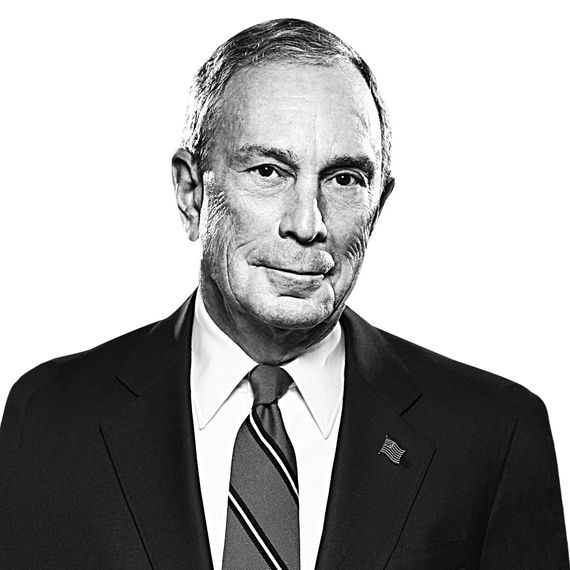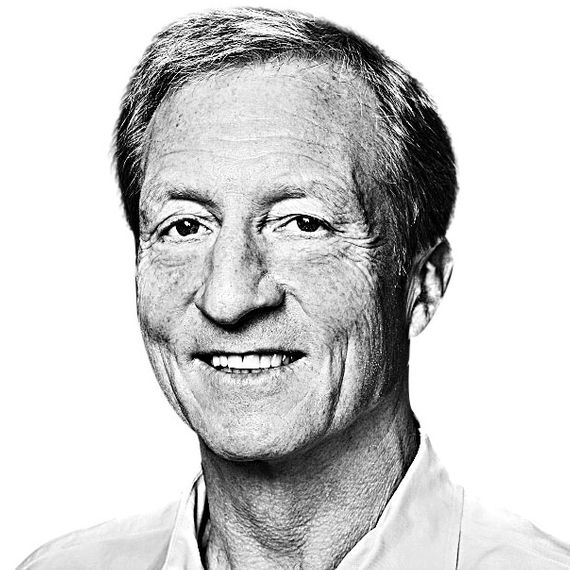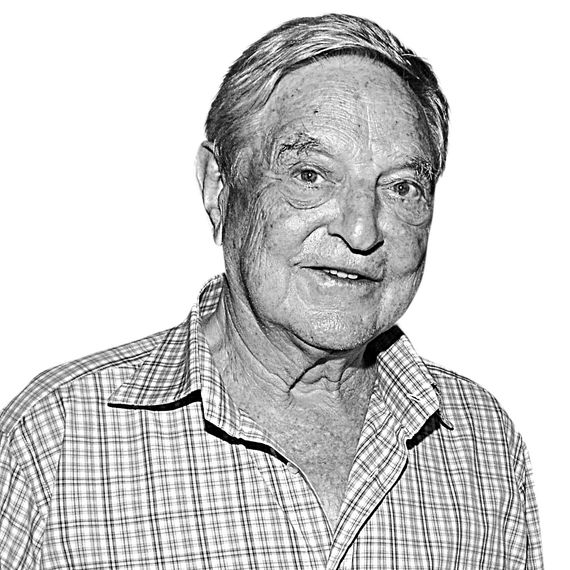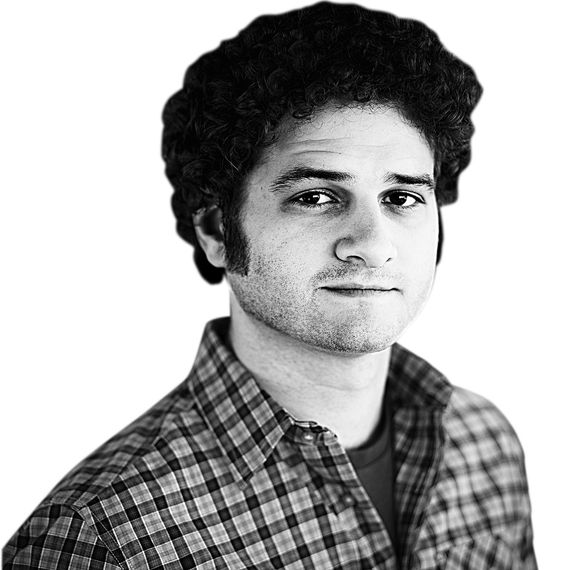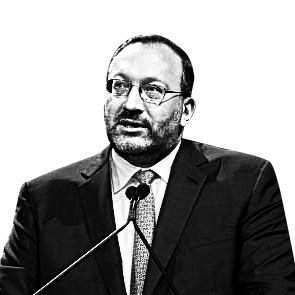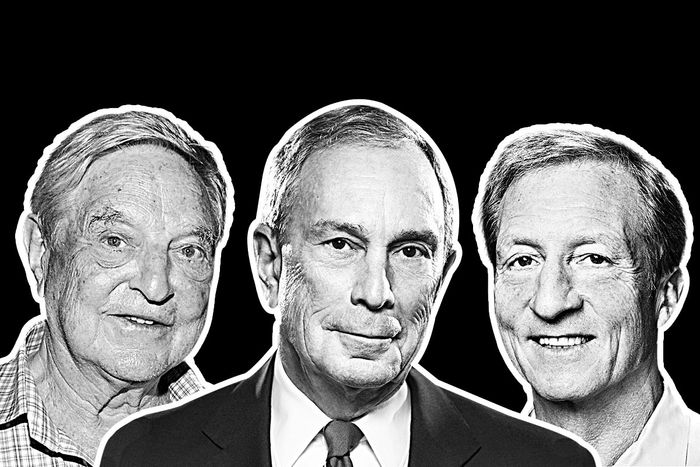
It’s a weird time to be a liberal billionaire. Almost all of the Democratic presidential candidates have sworn off help from super-PACs and made a big show of rejecting cash from a wide range of potential donors: lobbyists, corporate PACs, and pharma execs included. Bernie Sanders and Elizabeth Warren have ruled out headlining closed-door fund-raisers altogether.
But that doesn’t mean the moguls of the left aren’t watching the race closely. Some rich progressives are looking at ways to sway the primaries, and others are biding their time until a nominee emerges. Still, while Hillary Clinton had decades-long relationships with some of the party’s biggest contributors last time around — like investor Haim Saban, who has sent Democrats tens of millions of dollars over the years and stayed in close touch with Clinton throughout her campaign — few of today’s candidates have those friendships. And the donor pool has changed since 2016 with the arrival of a handful of tycoons who have woken up to politics in the Trump era, like Facebook co-founder Dustin Moskovitz (see below), and with the departure of others, like J. B. Pritzker of the Hyatt-hotel family, who’s no longer a megadonor because he got a new job (as the governor of Illinois). While none of the available contributors have shown a willingness to go full Sheldon Adelson (who has given $300 million-plus in donations to Republican candidates and groups in federal elections since 2012, according to Center for Responsive Politics’ analyses of Federal Election Commission data) or Koch brothers (with their own sprawling political empire), here are the ones who could have the most sway over the coming year in both the primaries and the general election, according to campaign veterans and a review of donation records.
No. 1: Michael Bloomberg
Wanted to run for president, settled for being the party’s most influential outside force instead.
The former mayor made no secret of his desire to run in 2020, but he let reality win and has instead been making noise about spending half a billion dollars on a wide-ranging political machine dedicated to booting Trump. The onetime Republican and independent has plowed at least $160 million into Democratic groups and candidates since 2012. He seems unlikely to spend on the primaries, but he’s known to like Joe Biden and to have deep suspicions about Sanders and Warren. Speaking in Iowa earlier this month at a forum organized by the gun-reform groups he funds, he joked about Warren’s anti-corporate message: “Just to remind you, if my company hadn’t been successful, we wouldn’t be here today.”
No. 2: Tom Steyer
Wanted to be the party’s most influential outside force, settled for running for president instead.
No super-donor has been more of a thorn in the party Establishment’s side than Steyer since he started throwing money into Democratic politics ahead of the 2014 midterms. He has spent more on the left since then — at least $240 million through last year — than anyone else, but a huge portion of that has gone to his own political groups. Now he has decided to run for president after initially passing on a campaign earlier this year. Other Democrats aren’t expecting him to get too far, and they’ll be holding out their hands for the former hedge-funder’s remaining cash as soon as he bows out. Still, the candidate he’s had the most positive things to say about, Warren, has criticized the billionaire’s presence in the race.
No. 3: George Soros
The left’s most prominent benefactor.
Soros gives democrats and left-leaning organizations a lot of money — over $40 million to federal candidates and groups since 2015 alone — but he’s not just in demand because of his wallet. A longtime bogeyman on the right who was targeted by Trumpist Cesar Sayoc’s pipe bombs in 2018, Soros is an influential voice on the global stage whose word is followed closely by other wealthy Democratic donors looking for cues on where to invest. And he has never been afraid to speak his mind about candidates — he soured on Obama during his first term, and he has criticized Kirsten Gillibrand for her stand against Al Franken.
No. 4: Dustin Moskovitz
One of the least-known Facebook co-founders, he has had a political awakening in recent years.
Almost no one in Democratic politics knew Moskovitz until 2016, when, horrified by Trump, he opened his checkbook. The longtime entrepreneur and philanthropist and his wife, Cari Tuna, donated over $30 million to Democrats in 2016 and 2018 and more to nonpartisan political groups focused on voter-registration pushes and the like. Candidates and party leaders are increasingly wary of raking in too much money from tech leaders, like Moskovitz’s former colleagues atop Facebook, but they view the 35-year-old as an exception and one of their potential saviors.
No. 5: Donald Sussman, Fred Eychaner, and Jim Simons
Three low-profile magnates who give more to Dems than almost anyone else.
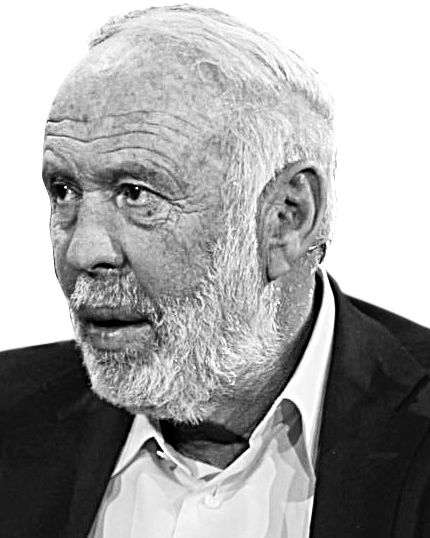
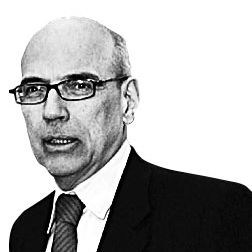
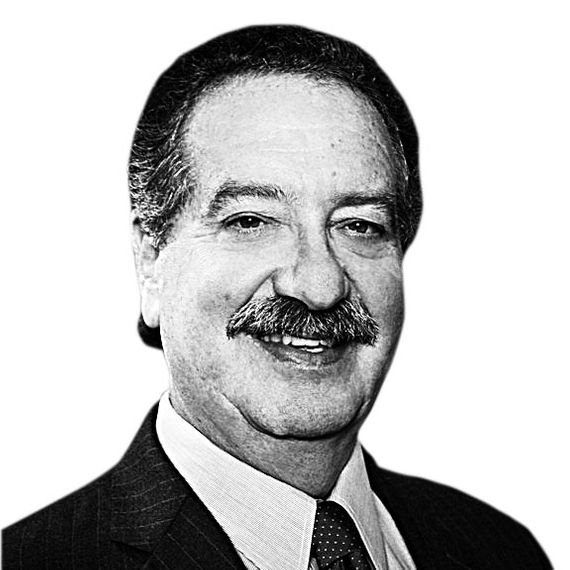
You don’t have any idea who these guys are, do you? They’re mostly okay with that. Sussman (a hedge-fund manager who gave Democrats around $74 million from Obama’s reelection through last year’s midterms), Eychaner (a Chicago media don, $75 million), and Simons (a hedge-fund pioneer, $67 million) are hardly household names, and they’ve shown little interest in becoming Steyer- or Bloomberg-style celebrities. (You may be more familiar with Simons’s ex–co–chief executive Robert Mercer, one of Trump’s biggest boosters.) But all three are at the top of practically every Dem fund-raiser’s wish list after doling out huge amounts to both Obama and Clinton.
Wild Card: Seth Klarman
The onetime GOP megadonor offers Dems moderate cred, if they’re into that kind of thing.
Karman is in a somewhat different category. The Boston hedge-fund guru doesn’t have a long history of writing showstopping checks, but after years of donating to Republicans, he started giving lots to Democrats following Trump’s election. He gave nearly $6 million in 2018 alone. For Dem candidates eager to stick it to Trump or to prove they can reach out to former Republicans, Klarman’s support could prove invaluable. Not that he’s your average swing voter, of course.
*This article appears in the August 19, 2019, issue of New York Magazine. Subscribe Now!



